
Roberto Gastone Zeffiro Rossellini was an Italian film director, screenwriter and producer. He was one of the most prominent directors of the Italian neorealist cinema, contributing to the movement with films such as Rome, Open City (1945), Paisan (1946), and Germany, Year Zero (1948). He is also known for his films starring Ingrid Bergman, Stromboli (1950), Europe '51 (1952), Journey to Italy (1954), Fear (1954) and Joan of Arc at the Stake (1954).

Giovanni "Nanni" Moretti is an Italian film director, producer, screenwriter, and actor.
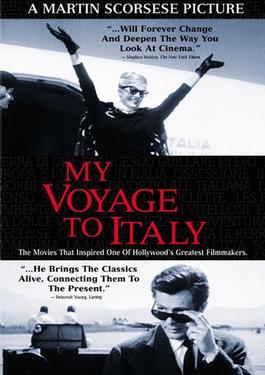
My Voyage to Italy is a personal documentary by acclaimed Italian-American director Martin Scorsese. The film is a voyage through Italian cinema history, marking influential films for Scorsese and particularly covering the Italian neorealism period.

The following discography contains information regarding some of the published recordings by Enrico Caruso made from 1902 through 1920 as have been made available in selected compact disc compilations.

Francesco Rosi was an Italian filmmaker, screenwriter and theatre director. His film The Mattei Affair won the Palme d'Or at the 1972 Cannes Film Festival. Rosi's films, especially those of the 1960s and 1970s, often appeared to have political messages. While the topics of his later films became less politically oriented and more angled toward literature, he continued to direct until 1997, his last film being the adaptation of Primo Levi's book, The Truce.
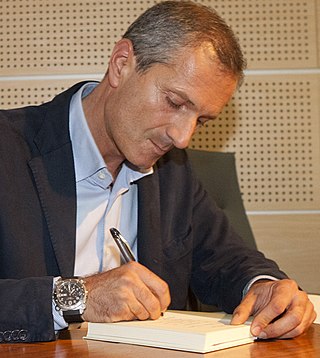
Gianrico Carofiglio is an Italian novelist and former anti-Mafia judge in the city of Bari. His debut novel, Involuntary Witness, published in 2002 and translated into English in 2005 by Patrick Creagh, was published by the Bitter Lemon Press and has been adapted as the basis for a popular television series in Italy. The subsequent novels were translated by Howard Curtis and Antony Shugaar.

Fiorella Mannoia is an Italian singer, songwriter and actress.

Antonio Pietrangeli was an Italian film director and screenwriter. He was a major practitioner of the commedia all'italiana genre.

Nino Taranto was an Italian film actor. He appeared in more than 80 films between 1924 and 1971.
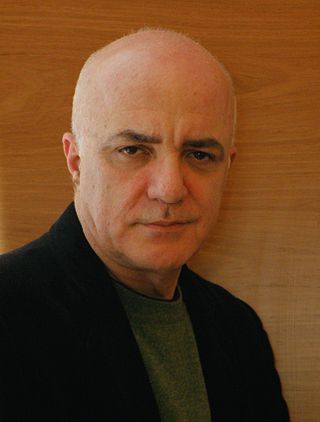
Luigi Petrucci is an Italian film and television actor.
Doppio Petto is a short film written and directed by Giuseppe Ferlito. It is filmed in Ferlito's native town of Burgio. The cast is made up of citizens of Burgio and the nearby town of Villafranca Sicula. The technicians of the film all come from the "Cinema Immagina" film school. All the characters in the film, except for the narrator, speak the Burgio Sicilian dialect. There are Italian subtitles for people who do not understand the Sicilian language. It was filmed in 1997 and was releashed shortly after. It runs about 35 minutes long.

Flavio Calzavara was an Italian film director and screenwriter. He directed 21 films between 1939 and 1956.
Ernesto Mahieux is an Italian actor, sometimes credited under the name Ernesto Maiè.

Marcello Abbado was an Italian pianist, composer, conductor and academic teacher. His compositions include several orchestral works, two ballets, numerous pieces for solo piano, and chamber music. As a pianist, he played in major concert halls of the world. He taught composition at several conservatories, ultimately at the Giuseppe Verdi Conservatory. In 1989 he was awarded the gold medal for Meritorious Culture and Art by the Government of Italy.
Marina Confalone is an Italian actress, screenwriter, theatre director, writer, holder of five David di Donatello awards.
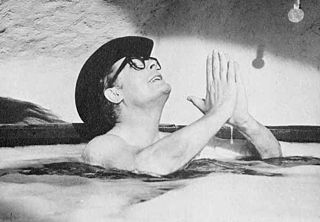
The list of the 100 Italian films to be saved was created with the aim to report "100 films that have changed the collective memory of the country between 1942 and 1978". Film preservation, or film restoration, describes a series of ongoing efforts among film historians, archivists, museums, cinematheques, and non-profit organizations to rescue decaying film stock and preserve the images they contain. In the widest sense, preservation assures that a movie will continue to exist in as close to its original form as possible.

Giovanni Davide Maderna is an Italian film director, writer and producer.
Massimo Felisatti was an Italian novelist, essayist, screenwriter, and director.
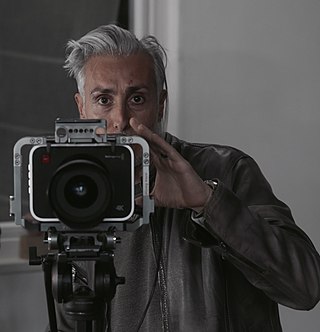
Giuseppe Ferlito is an Italian film director and screenwriter.
Franco Piavoli is an Italian film director, screenwriter, and producer.















